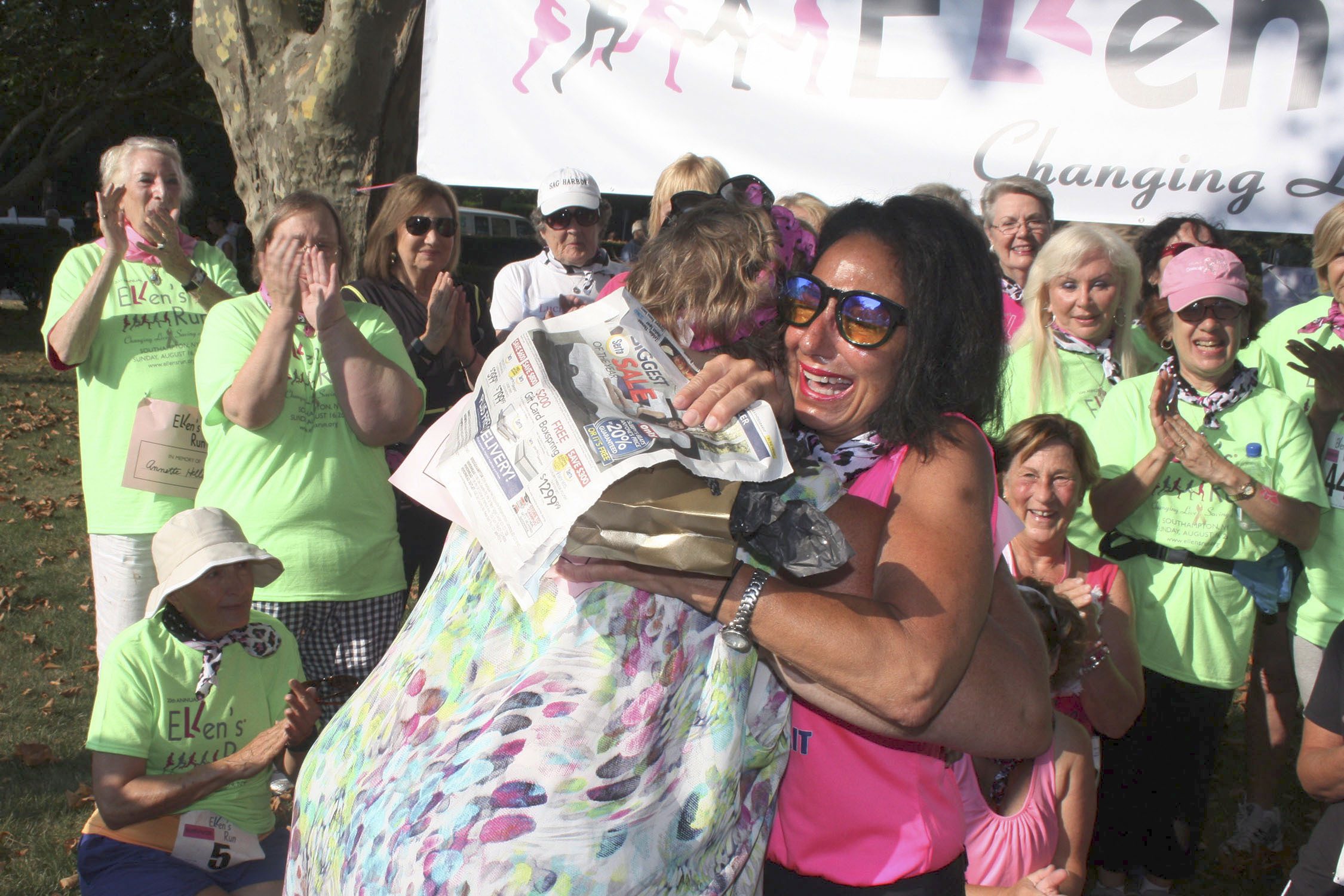
It is unlike Jodi Wasserman to ask for help. She values her independence and tenacity, and puts her concerns for others above herself.
But in the midst of her fight against stage 2 breast cancer, she often found herself turning to the women sitting beside her, as they all underwent radiation, a buzz of solidarity, understanding and empathy among them — “a sense of ‘Ah, she gets it,’” Wasserman recalled.
At the time, Cancer Hope Network — a service that connects survivors to current patients, and their loved ones, for one-on-one peer support — was not available to her locally. And even if it were, Wasserman said she isn’t sure that her pride would have let her use it right away.
But in hindsight, she wishes she’d had the option — which is, in part, why the 14-year cancer survivor now works as a volunteer for the organization.
“Nobody has to go through the journey alone,” the Water Mill resident said. “There’s always somebody who has been there.”
Earlier this year, Stony Brook Southampton Hospital’s Phillips Family Cancer Center and Ellen Hermanson Breast Center partnered with Cancer Hope Network to match adult cancer patients, age 18 and older, and their loved ones with volunteers who have undergone treatment and lived through a similar cancer experience.
Following the inaugural East End training last month, there are currently six local volunteers, including Wasserman, and two more in progress. Since then, most of them have been matched with clients, according to Ragan Ingram, clinical wellness and outreach coordinator for Stony Brook Southampton Hospital, noting that the program is free of charge.
“It’s an opportunity to give support to others,” she said. “It’s also very based on what works for you as a support volunteer. None of our volunteers is committed to showing up at a certain time or a certain place on a specific basis. It's very much, like, ‘Are you available this week? Does this day work for you? Do you have time?’ And if not, it is no problem at all. The organization is very flexible and very professional, and has a wonderful reputation that precedes them.”
Founded over 40 years ago, Cancer Hope Network maintains a nationwide database of nearly 500 survivor and caregiver volunteers, who provide support from diagnosis through treatment and into survivorship — including bereavement, when necessary.
“The wonderful thing is that people can be matched very specifically because they have such a large database,” Ingram said. “If you have a single father, for instance, with prostate cancer, Cancer Hope would go into their database and they would match him appropriately. They may even be able to find somebody with that same type of cancer and also on a similar parenting journey.”
The volunteers, who range in age from 19 to 94, have faced more than 80 types of cancer — comprising over 98 percent of the cancers that are diagnosed annually — and live across 36 states and Canada. In 15 different languages, they offer hope, support and guidance through the wide variety of challenges that come with a cancer diagnosis.
“It was the whole idea of matching somebody up that went through exactly what I went through,” Wasserman said of what drew her to the program. “No matter what it is in life — whether it’s a divorce, giving birth, marriage — nobody understands except that person who’s also been there. People try to be nice, but you just don’t get it.”
About 15 years ago, that was Wasserman herself, as she watched her close friend, Carol Zuhusky, battle breast cancer. During treatment, Wasserman tried to meet her every need — whether she wanted to take a walk, have a meal, laugh or cry, or be left alone.
On August 31, 2007, Zuhusky died at age 44. And, not long after, Wasserman made a vow.
“Literally six months to the day, almost, I was diagnosed,” she said, “and I immediately made a deal with the person above me and said, ‘Get me through this and, I promise, I’m going to help other women going through what I am going through.’
“And I’m here today to tell this story, and I threw myself into it. I really did.”
What began as volunteering at Stony Brook Southampton Hospital evolved into her work with Lucia’s Angels, The Coalition for Women's Cancer, Ellen’s Run and SHARE Cancer Support, a lifeline for women facing breast, ovarian, uterine, cervical or metastatic breast cancer. She even became certified as an end of life doula.
It has simply changed her life, she said.
“I never thought I would think that being diagnosed with cancer was anything positive, or would ever be, and it turned into one of the most positive things in my life, it truly has. I’m gonna cry,” Wasserman said, taking a deep breath. “I realized my passion lies with helping other people and it just opened up a whole new place for me. I love it. I can’t give enough.”
Cancer Hope Network support volunteers must be at least one-year post-treatment, or successfully undergoing maintenance therapies, and initial contact typically takes place over the phone, though there is also online and in-person support upon request.
And to prospective clients, especially those who feel the same resistance that Wasserman would have expected, she says, “Try it. Just try it.”
“Nobody should ever be alone going through this,” she said. “It's tough enough getting the diagnosis and then following through. We’re all human, we all have similar feelings and that’s really it. I think the key thing is, nobody is ever alone on their journey.”
East End patients with cancer and their caregivers can be connected with a Cancer Hope Network support volunteer by visiting cancerhopenetwork.org/stonybrooksouthamptonhospital, or by calling 1-877-HOPENET. To become an East End support volunteer, call Ragan Ingram at 631-726-8800 or email ragan.finalborgo@stonybrookmedicine.edu.